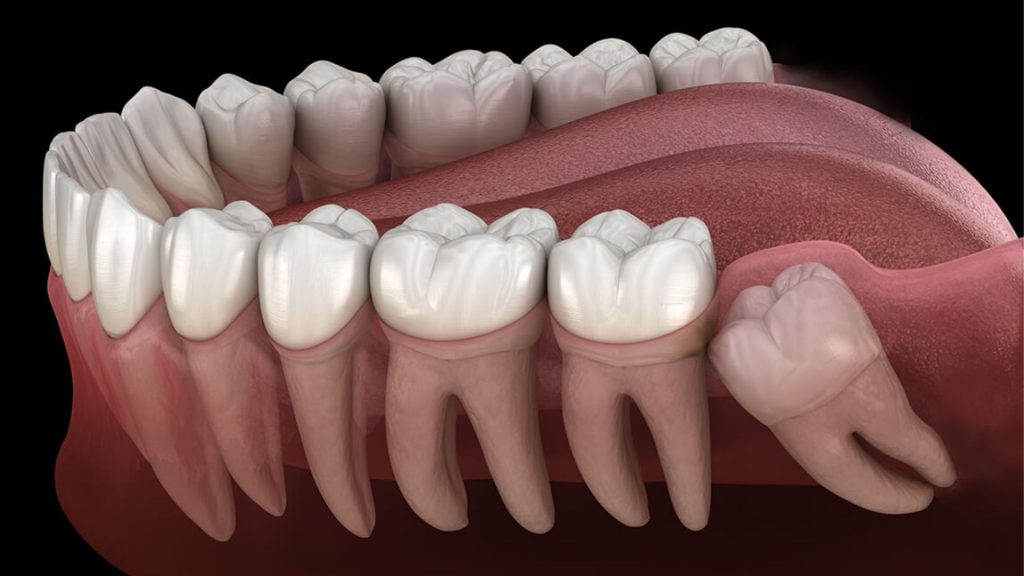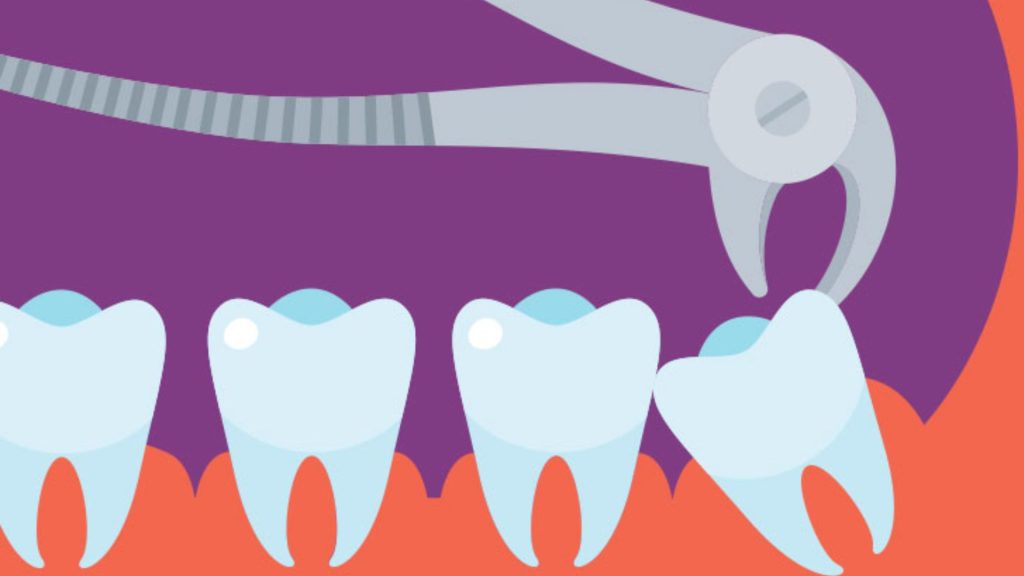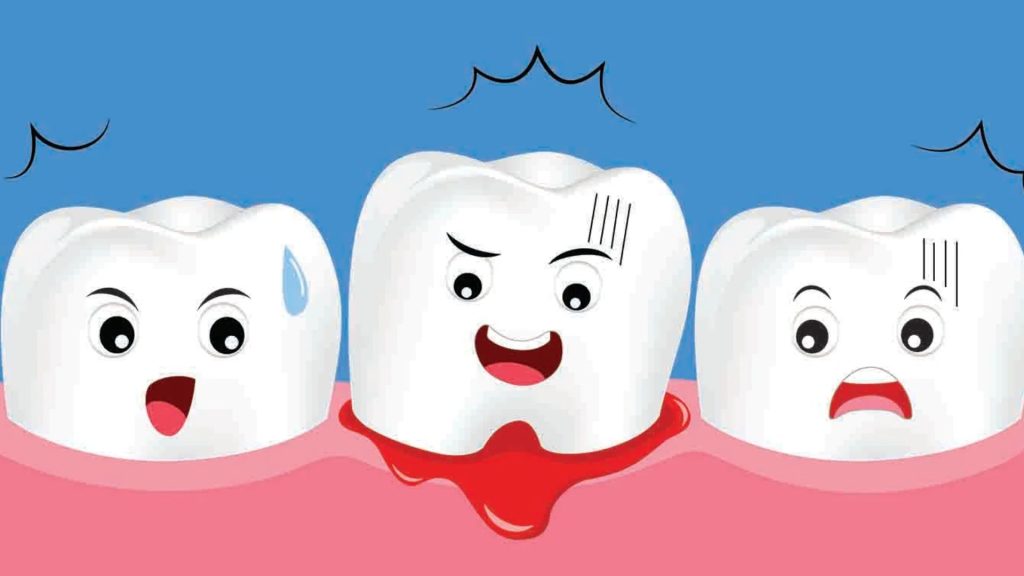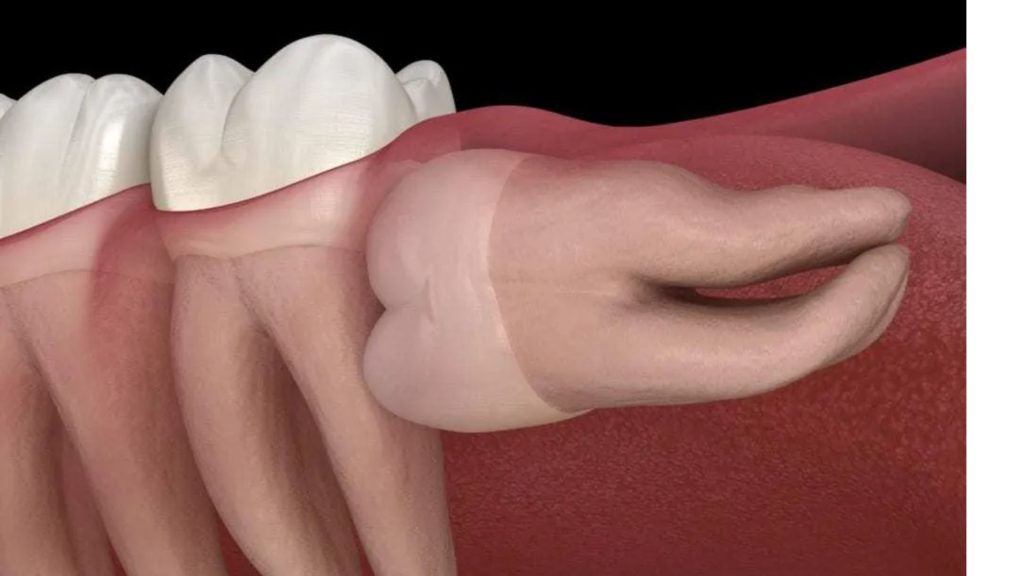Wisdom teeth recovery is crucial after their removal. Recovery is crucial because it gives your body time to mend and adjust after dental surgery. When it comes to managing pain, avoiding problems, and having a speedy and full recovery after wisdom teeth removal, knowledge is power. Let’s talk about what it’s like to recover after wisdom teeth surgery, how to speed up the process, and what respected dentists recommend.
How Long Is Wisdom Teeth Recovery?

How Long Do Wisdom Teeth Take To Heal? The American Association of Oral and Maxillofacial Surgeons states that a wisdom teeth removal operation recovery period typically lasts up to 2 weeks. Early on, a patient may have discomfort from pain and swelling, but these symptoms often go away within a few days. Depending on how well the patient cooperates and how quickly they heal on their own, a full recovery may take one to two weeks or more.
The recovery period following wisdom teeth removal varies on the intricacy of the case, the position and orientation of the wisdom teeth, the patient’s age, general health, and the surgical approach employed.
However, it’s crucial to speak with your dentist or oral surgeon for personalized guidance on your unique case’s recuperation period.
Explain Wisdom Teeth Removal Recuperation

Healing and adjusting to life without a wisdom tooth is what happens during the healing phase after surgery to remove one. This healing technique is outlined here:
The first day after surgery:
- Red blood cells gather in the injured area to stop bleeding.
- The surrounding area may be swollen and painful.
- It is recommended to rest, apply cold to reduce swelling, take pain relievers and adhere to a soft diet.
Days 2 – 3 after surgery:
- Swelling and pain will continue to subside.
- A protective barrier may appear in the affected area.
- Continue to follow the soft diet, wash your mouth and take your medicine as directed.
Days 4 – 7 after surgery:
- Swelling and pain subside.
- The protective barrier continues to form and begins to heal.
- You can gradually transition from a soft to a regular diet, but avoid hard, pointed foods.
- Continue to take care of oral hygiene, rinse your mouth, and take medication if necessary.
Week 2 – 3 after surgery:
- The swelling and pain are almost gone.
- The protective barrier continues to heal and fall off.
- The state of injury moves to the healing stage.
- You can go back to your normal diet, but avoid foods that are too hard or sharp.
- Continue proper oral hygiene and follow-up appointments with your dentist.
In short, depending on the patient’s growth and case complexity, wisdom teeth removal surgery recovery might take days to weeks. Follow your dentist’s recommendations to recuperate smoothly.
How To Speed Up Wisdom Teeth Recovery?
Maybe you’re already recovered from or getting ready for a wisdom teeth extraction. This is challenging and demands patience throughout rehabilitation. Don’t worry—you can speed up wisdom tooth recuperation. We’ll instruct you on the proper procedure:
- Follow your dentist’s instructions: This involves following instructions for mouthwash, medicine, and follow-ups.
- Proper oral care: After meals, rinse with physiological saline or doctor-recommended antibacterial solution. Avoid touching the afflicted region with sharp food or mouthwash. Oral hygiene reduces infection risk.
- Control pain and swelling: Reduce pain and swelling using doctor-prescribed painkillers and anti-inflammatories. Ice packs or cold packs help alleviate edema.
- Limit physical activity: To promote healing, minimize physical activity and reduce pressure on the wounded region.
- Proper nutrition: To recover, eat vitamin C and protein-rich meals, etc,…
In conclusion, everyone recovers differently and may take longer than planned. Oral hygiene requires patience and persistence. You can minimize difficulties and return to oral health rapidly with proper care and recovery measures. Be patient and hope the healing goes well and you feel confident again.
Common Wisdom Teeth Repair Issues
After wisdom teeth extraction, unexpected issues may develop. It might involve pain, swelling, bleeding, or difficulty opening your mouth. Don’t worry—we’ll help you understand and mitigate these typical issues. Knowing what to expect throughout recovery can help you prepare and feel more secure.
Let’s go through some of the most frequent issues that arise during wisdom teeth repair and how to fix them:
Bleeding Wisdom Teeth

After having wisdom teeth out, it is not uncommon for the patient to have postoperative bleeding. Blood vessels are injured during wisdom teeth removal, causing bleeding. This is a normal bodily reaction that should subside in a short period.
To control bleeding wisdom teeth, the following measures can be applied:
- Blood pressure: Gnaw on a bandage or cotton gauze to gently pressure the surgical region. To halt bleeding, this pressure presses on the blood artery.
- Chewing cold dandruff: Chewing cold dandruff constricts blood vessels and reduces bleeding. After surgery, apply cold dandruff for 10-15 minutes.
- Avoid physical activity: Limit strong exercise, loud laughing, and extensive talking during recovery to prevent mouth pressure and bleeding.
- Use an ice pack: For 10-15 minutes after surgery, use an ice pack to constrict blood vessels and minimize swelling and discomfort.
- Using anti-bleeding medication: If bleeding persists, your doctor may give aminocaproic acid to halt it.
It’s normal for wisdom teeth to bleed. However, if you have excessive bleeding that doesn’t stop after a long period or other strange symptoms, see a doctor immediately.
Wisdom Tooth Infection

Post-surgery wisdom tooth infection is prevalent. If not adequately cleansed, the oral mucosa surgical site after wisdom tooth removal might get infected. This dental terminology-based information is relevant:
- Oral hygiene: Oral hygiene after wisdom teeth removal prevents infection. After meals and before night, rinse your mouth with physiological saline or warm salt water.
- Use antimicrobials: To prevent infection, your healthcare provider may give amoxicillin or clindamycin.
- Keep the surgical area clean and dry: Keep wounds clean and dry. Avoid heated food and drinks and clean the surgical region after meals with physiological saline solution or warm salt water.
- Treating an infection: Infections may be cleaned and tissue removed by widening the surgical incision. Also, your dentist will prescribe stronger medications for the illness.
- Follow the instructions: Following wisdom teeth removal guidelines and follow-up consultations are crucial. The dentist will examine the incision and decide on further treatment.
In conclusion, you should see a doctor right away if you have any symptoms of infection, including redness, warmth, discomfort, pus, or a foul odor.
Inflammation
After wisdom teeth erupt or are removed, inflammation and edema are frequent. How to reduce soreness and inflammation after a wisdom teeth extraction is described here.
Inflammation of wisdom teeth:
- Features: The mucosa around wisdom teeth becomes red, and swollen, and may be sensitive to food or touch.
- Causes: It is common for germs to enter the mucosa around wisdom teeth, leading to infection and inflammatory response.
- To reduce wisdom tooth inflammation, you can take the following measures:
- Rinse the mouth with a physiological saline solution to clean the mucosal area and reduce bacteria.
- Use anti-inflammatory medications and antibiotics prescribed by your dentist to control inflammation and infection.
- Follow instructions for oral care after surgery, including gentle mouthwash and avoidance of hard, pointed foods that can injure the mucosal area.
Swelling:
- Features: The area around wisdom teeth is larger than normal, causing swelling and discomfort.
- Cause: The swelling occurs due to an inflammatory response and increased blood flow to the area of injury.
- To reduce the swelling of wisdom teeth, you can apply the following measures:
- Apply an ice pack or cold pack for 15-20 minutes to minimize swelling and irritation.
- Rest and restrict activities to relieve mucosal pressure and discomfort.
- Stay hydrated and eat well to recuperate.
Alveolar Osteitis
Post-wisdom teeth extraction alveolar osteitis is prevalent. Here is an explanation of how the gaps emerge and some strategies for closing them:
-
- Features: Missing place occurs when wisdom teeth pitting does not heal and create a barrier. This may hurt and slow recovery.
- Cause: After wisdom teeth extraction, acupoints migrate or shed, causing a lack of protective barrier and fibrin layer.
- How to reduce it:
-
- Make sure to clean and sanitize your mouth before and after wisdom tooth extraction as directed by your dentist.
- Avoid smoking and nicotine products before and after wisdom teeth extraction to reduce blood flow and spacer formation.
- After wisdom teeth extraction, rinse your mouth gently with physiological saline solution and avoid contacting the afflicted region with hard, sharp foods or scraping.
Thus, if you encounter space loss signs including discomfort and substance loss, see your dentist promptly.
Conclusion
Wisdom tooth restoration might seem like a scary prospect, but there’s no need to worry. Allow your mouth enough time to heal after having your wisdom teeth removed. The most important thing is to remember that you do not face this challenge alone.
The Spring Orchid Dental Center understands the difficulty you may have while recovering your wisdom teeth. Our professional dental staff is committed to giving you the highest quality care and restoration services. Not only will we assist you in extracting that troublesome wisdom tooth, but we will also be by your side while you recover. Learn from the experts how to stop bleeding, reduce swelling, and realign a dislocated joint.
Getting your wisdom teeth pulled or undergoing corrective dental procedures at Spring Orchid Dental Clinic has several benefits. The medical staff’s care, expertise, creativity, and camaraderie are all geared toward your recovery.
FAQs
Do Wisdom Teeth Extractions Need Follow-Up?
After wisdom teeth extraction, your dentist may request follow-up appointments. However, a follow-up appointment following wisdom teeth extraction is often necessary to check for damage and guarantee a speedy recovery.
A follow-up appointment with the dentist or doctor is often arranged after having wisdom teeth extracted. At your follow-up visit, your doctor will evaluate the wound, verify tissue healing, and decide whether further treatment is required. After surgery, you’ll need to see your doctor for follow-up appointments so they can check on any swelling, inflammation, bleeding, or other complications. If difficulties arise, the doctor will propose treatments and change the treatment strategy.
Thus, it is crucial to keep your follow-up appointments and call your doctor if you have any concerns following wisdom teeth extraction.
Does Wisdom Tooth Extraction Need Painkillers?
Yes, pain medication following wisdom teeth extraction is usually advised. After wisdom teeth extraction, pain and edema may occur.
The correct painkiller and instructions will be given by your dentist. NSAIDs and moderate opioids may alleviate pain and edema. However, follow the doctor’s directions and dosage.
Non-pharmaceutical approaches to pain management include the use of cold (through cold packs or ice packs) and enough rest. Most crucial, see your dentist if you are in discomfort following surgery.
How Do You Clean Your Mouth After Wisdom Teeth Extraction?
After wisdom tooth extraction, taking care of proper oral hygiene is very important to ensure a smooth recovery and avoid infection problems. Here are some general guidelines:
Mouthwash: Rinse with warm saline or a dentist-recommended chlorhexidine solution. Do not scrub your mouth or use hot salt water.
- Brushing: After surgery, brush but avoid the wound region for 24–48 hours. Then, brush your teeth gently and carefully around the wisdom tooth extraction area.
- Use a soft brush: To avoid injuring the wisdom tooth extraction area and causing bleeding, use a soft brush and brush gently.
- Avoid spitting blood: During oral hygiene care, avoid spitting blood so as not to hurt the wisdom tooth extraction area and cause bleeding.
- Limit the use of oral catalysts: Avoid smoking, drinking, and using straws for the recommended period of time after surgery, as these habits can cause infection and affect recovery.
Also, always contact your dentist if you have any problems or concerns with your oral hygiene care after wisdom tooth extraction.





